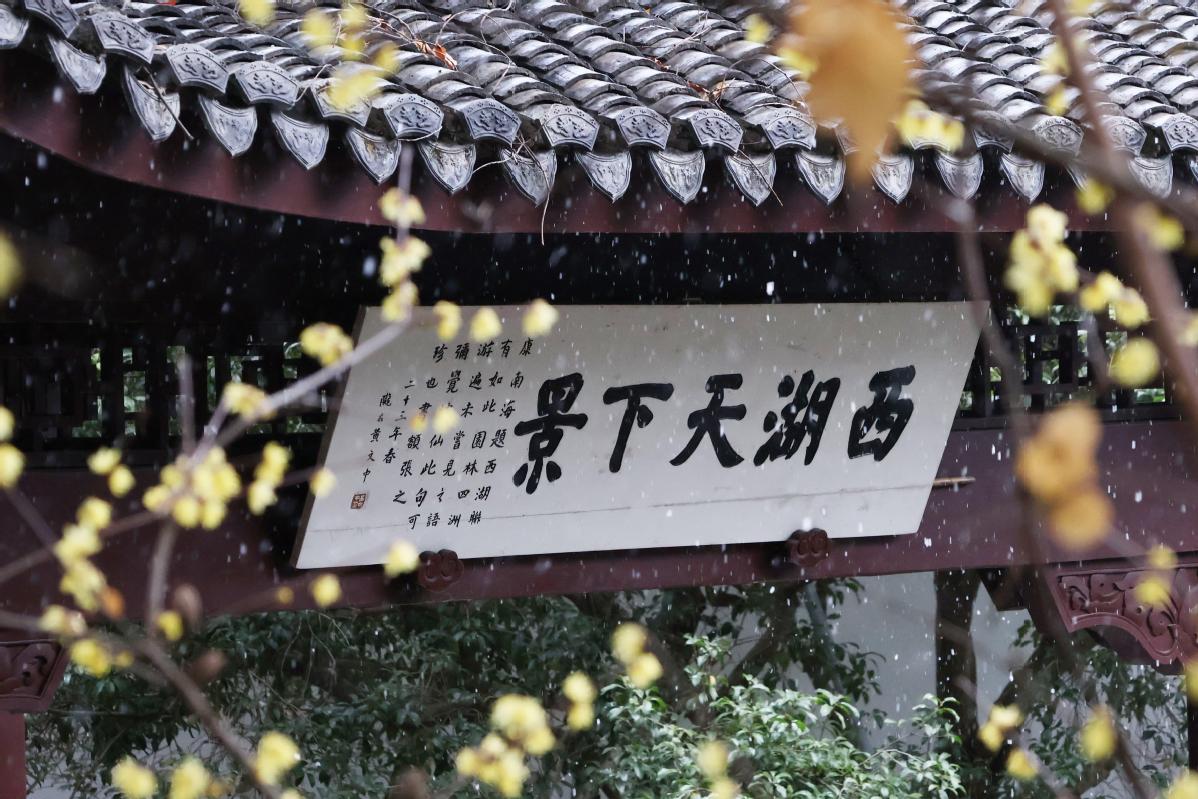Chinese experts share COVID-19 experiences


Countries worldwide have welcomed health staff efforts to fight pandemic
When Peng Zhiqiang went to Serbia to aid COVID-19 control and prevention efforts there in March, he thought he would stay in the country for just a couple of weeks. However, the duration of his visit was extended three times to 82 days following requests from his hosts.
Among the first public health experts sent by the Chinese government to aid the overseas fight against the novel coronavirus, Peng and six other team members, who had all fought the pandemic in Guangdong province, shared their expertise with medical staff in Serbia, including working with local authorities to expand testing for the coronavirus and to build temporary hospitals quickly to isolate and treat the increasing numbers of patients.
"The Serbian government and people embraced our arrival and showed great respect for our work," said Peng, an infectious disease researcher at the Guangdong Provincial Center for Disease Control and Prevention, in Guangzhou, Guangdong's provincial capital. "The daily number of new COVID-19 cases in Serbia was more than 400 when we first arrived, and it fell to as low as 18 in the days that followed."
Since the onset of the global pandemic in March, China has sent teams of medical experts overseas at the request of foreign governments. In addition to Serbia, countries including Peru, Bangladesh, Algeria, Sudan, Zimbabwe and Equatorial Guinea have welcomed Chinese medical teams, who have shared China's successful experience in fighting the virus to contribute to global pandemic control.
In addition to making personal visits to guide COVID-19 pandemic prevention and control efforts, Chinese public health experts have also maintained exchanges with their counterparts in many other countries and regions affected by the pandemic over the past few months through means such as organizing and attending video seminars and publishing academic research papers in international journals.
In Serbia, Chinese experts attended the country's high-level meetings concerning COVID-19 pandemic prevention and control seven times and visited 17 cities seriously affected by the pandemic. During their nearly three-month stay in the country, they also visited 65 medical institutions and public health institutions, participated in 47 seminars on COVID-19 prevention and control and provided 15 training sessions for 1,140 local medical staff, according to China's National Health Commission.
They also provided suggestions on COVID-19 pandemic control and prevention and treatment of patients, such as establishing a number of makeshift hospitals to accommodate and isolate the increasing number of cases, which contributed to effective control of the epidemic in Serbia, the commission said.
In Sao Tome and Principe, in Africa, a 12-member expert team sent by China provided training and technical guidance on COVID-19 control and prevention and had video exchanges with experts sent to the country by the World Health Organization on topics including building makeshift hospitals and conducting epidemiological investigations. Senior Sao Tome and Principe officials, including the prime minister and health minister, expressed their gratitude for China's assistance, the commission said.
"In Zimbabwe and Equatorial Guinea, local officials and experts strongly applauded China's achievements in COVID-19 control and prevention, and valued our experiences in fighting the pandemic," said Zhu Yimin, who headed a 12-member expert team to the two African countries in May.
In Zimbabwe, the team also prepared detailed written suggestions on COVID-19 control and prevention, which were presented to the country's health minister. The document was based on China's experiences-including carrying out early testing, reporting and the isolation and treatment of patients-and took into account the situation in Zimbabwe, said Zhu, also deputy head of the Hunan Provincial Health Commission.
The team also took a large quantity of medical supplies to Zimbabwe, including masks, testing equipment and ventilators, he said.
Before the team left Zimbabwe in late May, the country was considering loosening restrictions to reopen the economy once the epidemic there was brought under control, even though the number of infections was still rising at the time.
"We advised them to exercise caution after reopening borders and restarting the economy, and that epidemic control measures could only be strengthened during the restoration of economic activity to prevent rebounds," Zhu said.
In addition to the medical experts sent abroad, Chinese medical assistance teams in 56 countries have also aided local efforts to prevent and control COVID-19 since the start of the pandemic, the National Health Commission said. More than 900 team members in the countries have hosted nearly 400 training sessions and health education activities, providing training to more than 20,000 locals, it said.
- Beijing becomes China's second 5-trillion-yuan economy in 2025
- Strengthening trade bonds benefits people across Taiwan Strait: spokesperson
- Chinese researchers develop eye surgery robot
- High-speed train staff members in Beijing busy preparing for Spring Festival travel rush
- Mainland says DPP's so-called trade deal with US sells out Taiwan's interests
- A bar with no bar





































